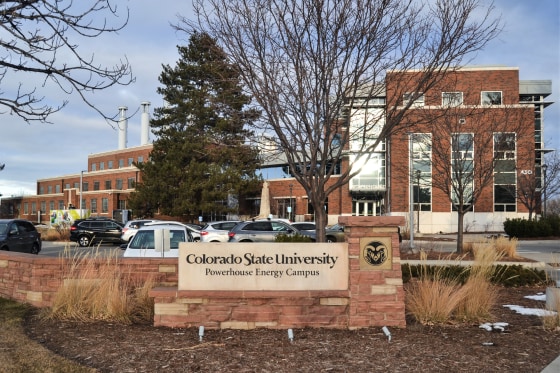Several international students at Colorado universities have had their visas revoked by the Department of Homeland Security, according to the universities.
Between the University of Colorado and Colorado State University, 10 students have had their F-1 visa, which allows foreign students to study at universities in America, rescinded as of Tuesday evening.
The University of Colorado said four international students were impacted. Meanwhile, six students at Colorado State University had their visas terminated, according to the school.
“We are focused on supporting the success of all of our students, including international students. Each one of our students are seeking to advance their careers and the lives of their families, and we understand the anxieties that visa revocations cause to impacted students," the University of Colorado said in a statement.
The school added, "We urge any international student with questions or concerns to reach out to their campus’ international student office.”
Colorado State University said the "affected students are advised to immediately contact the embassy of their home country" and "we are working with our state and federal elected officials to ensure that our students are informed of all their options."
The universities declined to provide additional information or the students' identity, citing privacy reasons.
The revocation of nearly a dozen visas in Colorado comes after a wave of high-profile arrests of international students across the country in March. The Trump administration has justified its decision to deport the students based on a provision in immigration law. It allows the secretary of state to deport someone if it is determined that the person “would have serious adverse foreign policy consequences for the United States.”
In March, Mahmoud Khalil, a student who took part in the protests at Columbia University, was apprehended by federal immigration officials in New York for allegedly leading activities “aligned to Hamas,” which the United States has designated a terrorist organization.
Another student at Tufts University, Rumeysa Ozturk, was grabbed off the street by federal officers in plainclothes while on her way to break her Ramadan fast with friends over allegations that she "engaged in activities in support of Hamas."
A year ago, Ozturk co-wrote a student newspaper op-ed criticizing the university’s response to demands that it “acknowledge the Palestinian genocide” and “divest from companies with direct or indirect ties to Israel.”
Authorities also detained Badar Khan Suri, a graduate student from India, who was teaching at Georgetown University on a student visa.
Assistant DHS Secretary Tricia McLaughlin said Suri was “actively spreading Hamas propaganda and promoting antisemitism on social media” and had "close connections to a known or suspected terrorist, who is a senior advisor to Hamas.”
Khalil, Ozturk and Suri do not face known criminal charges.
Last week, Secretary of State Marco Rubio said the State Department had revoked 300 or more student visas.
“It might be more than 300 at this point. We do it every day. Every time I find one of these lunatics, I take away their visas,” he said. "I think it’s crazy to invite students into your country that are coming onto your campus and destabilizing it. We’re just not going to have it. So we’ll revoke your visa."
Rubio added, "Once your visa is revoked, you’re illegally in the country and you have to leave."

